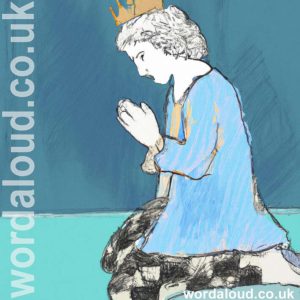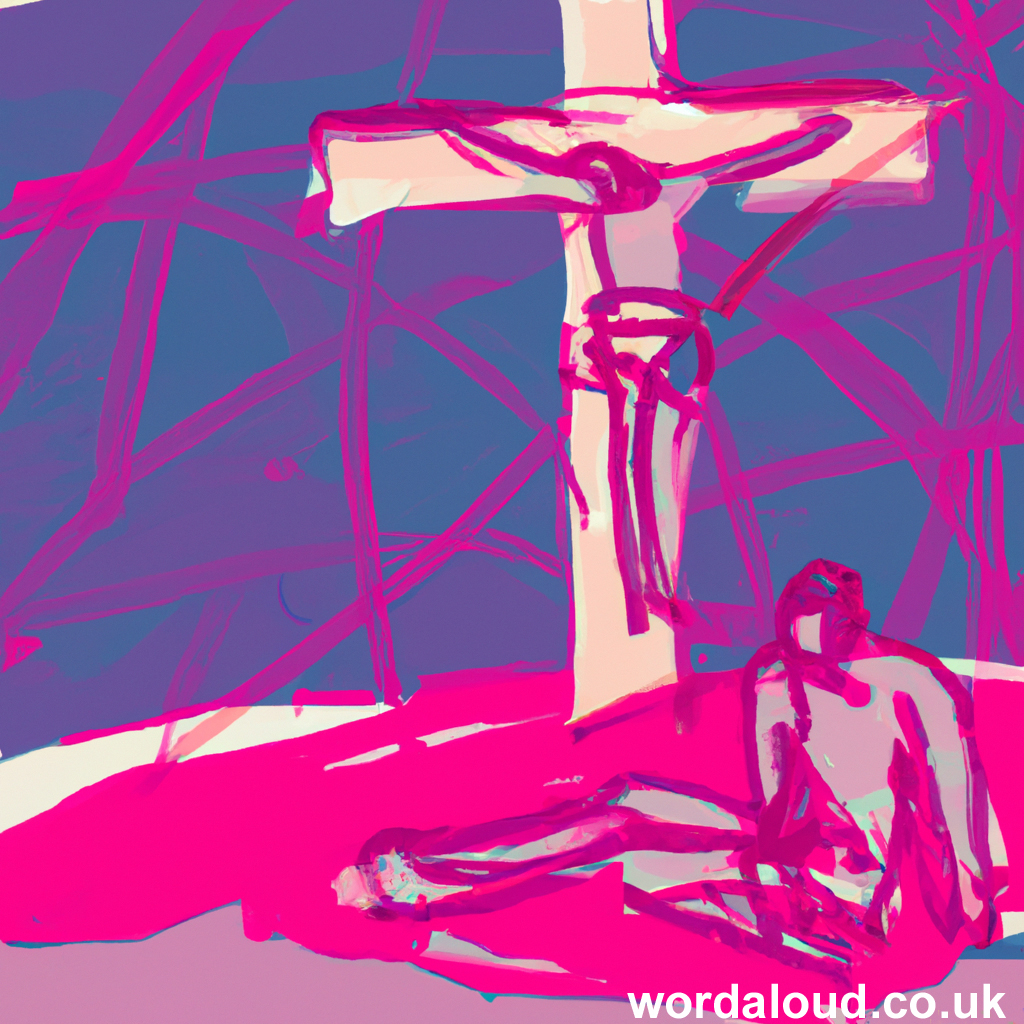Christian Art | Baptism Of The Lord | Descent Of The Holy Spirit | Pentecost
Office Of Readings | Eastertide Week 6, Monday | A Reading From The Treatise Of Didemus Of Alexandria On The Trinity | The Holy Spirit Makes Us New In Baptism
‘The Holy Spirit makes us new in baptism.’
Didymus the Blind of Alexandria offers a rich meditation on the work of the Holy Spirit in the sacrament of baptism. Writing in the fourth century—a time of intense doctrinal development in the Church—Didymus articulates a pneumatology (doctrine of the Holy Spirit) that remains deeply relevant today. His vision of baptism is not merely as a ritual washing, but as a divine transformation, in which the Spirit, co-equal with the Father and the Son, recreates the human person and initiates them into divine life.
The Holy Spirit’s Divinity And Work Of Renewal
Didymus begins with a powerful affirmation of the Holy Spirit’s divinity: ‘The Holy Spirit renews us in baptism through his godhead, which he shares with the Father and the Son.’ This declaration is not incidental—it reflects the heated theological climate of Didymus’ time. The Church was still defending the full divinity of the Spirit against heresies like Arianism and Pneumatomachianism, which either denied or diminished the Spirit’s divine status.
Here, Didymus aligns with the pro-Nicene consensus that the Spirit is fully God and thus capable of performing divine works—especially the recreation of the human person. Echoing Titus 3:5, which speaks of ‘the washing of rebirth and renewal by the Holy Spirit’, Didymus affirms that in baptism, the Spirit restores our original dignity and ‘fills us with his grace’, erasing the disfigurement of sin. What was once deformed by sin is now refashioned, beautified by grace, and renewed in the divine image.
Transformation Into Sons And Heirs Of God
In one of the most theologically potent sections, Didymus teaches that through baptism, we are no longer ‘men of dust and ashes’ but are transformed into ‘spiritual men, sharers in the divine glory, sons and heirs of God the Father’. This echoes Saint Paul’s teaching in Romans 8:17 that those who are led by the Spirit become ‘heirs of God and co-heirs with Christ’. Here we see a central theme of Eastern Christian theology: theosis, or divinization. The human person is not merely saved from sin, but elevated to divine sonship—becoming by grace what Christ is by nature.
Moreover, Didymus emphasizes the Spirit’s capacity to ‘reopen heaven’ and restore paradise, surpassing even the dignity of angels. This recalls the Alexandrian tradition, particularly in the thought of Origen and Athanasius, in which human destiny is to participate fully in divine life. It also prefigures the later doctrine of deification as developed by Maximus the Confessor and Gregory Palamas.
Two Births: Natural And Spiritual
Drawing from John 1:12–13 and John 3:5, Didymus explains that every human is conceived twice: first naturally through the flesh, and then supernaturally through the Spirit. This birth ‘not by human generation… but of God’ marks a transition from mere biological existence to supernatural life. The Spirit, as the divine agent, is thus not only the Giver of Life but the Giver of divine sonship.
This Johannine theology of rebirth is at the heart of the Christian sacramental imagination. Just as the Logos became flesh through the power of the Spirit in Mary’s womb, so too the believer is spiritually conceived in the font of baptism through the same Spirit. In this way, baptism is nothing less than a participation in the Paschal mystery—the dying and rising of Christ.
Visible And Invisible Dimensions Of Baptism
Didymus speaks beautifully of the dual action in baptism: ‘Visibly, through the ministry of priests… Invisibly, through the ministry of angels.’ This mirrors the dual nature of the sacrament: its outward form and its inward grace. While the human minister performs the visible rite, the Spirit acts invisibly, sanctifying both soul and body.
His mention of angels is especially striking. It reflects the mystical Alexandrian worldview in which the liturgy participates in the heavenly liturgy (cf. Revelation 4–5). Baptism, in this view, is not simply a human act on earth, but a cosmic event involving the heavenly host.
Baptism With Fire And The Theophanic Spirit
In interpreting John the Baptist’s prophecy that Christ would baptize ‘with the Holy Spirit and with fire’ (Luke 3:16), Didymus offers a symbolic reading grounded in spiritual theology. The Spirit’s baptism is twofold: water for cleansing and fire for strengthening and transformation.
This theme resonates with numerous biblical texts:
- Malachi 3:2–3 describes God as a refiner’s fire.
- Acts 2:3 describes tongues of fire at Pentecost.
- Hebrews 12:29 calls God ‘a consuming fire.’
In baptism, the fire of the Spirit does not destroy, but purifies and fortifies, just as metal is purified in the forge. Didymus’ use of this imagery evokes the ascetical struggle of Christian life: baptism marks the beginning of a journey of continual transformation by the Spirit, moving from corruption to incorruptibility.

A Reading From The Treatise Of Didemus Of Alexandria On The Trinity | The Holy Spirit Makes Us New In Baptism
The Holy Spirit renews us in baptism through his godhead, which he shares with the Father and the Son. Finding us in a state of deformity, the Spirit restores our original beauty and fills us with his grace, leaving no room for anything unworthy of our love. The Spirit frees us from sin and death, and changes us from the earthly men we were, men of dust and ashes, into spiritual men, sharers in the divine glory, sons and heirs of God the Father who bear a likeness to the Son and are his co-heirs and brothers, destined to reign with him and to share his glory. In place of earth the Spirit reopens heaven to us and gladly admits us into paradise, giving us even now greater honour than the angels, and by the holy waters of baptism extinguishing the unquenchable fires of hell.
We men are conceived twice: to the human body we owe our first conception, to the divine Spirit, our second. John says: To all who received him, who believed in his name, he gave power to become children of God. These were born not by human generation, not by the desire of the flesh, not by the will of man, but of God. All who believed in Christ, he says, received power to become children of God, that is, of the Holy Spirit, and to gain kinship with God. To show that their parent was God the Holy Spirit, he adds these words of Christ: I give you this solemn warning, that without being born of water and the Spirit, no one can enter the kingdom of God.
Visibly, through the ministry of priests, the font gives symbolic birth to our visible bodies. Invisibly, through the ministry of angels, the Spirit of God, whom even the mind’s eye cannot see, baptises into himself both our souls and bodies, giving them a new birth.
Speaking quite literally, and also in harmony with the words of water and the Spirit, John the Baptist says of Christ: He will baptise you with the Holy Spirit and with fire. Since we are only vessels of clay, we must first be cleansed in water and then hardened by spiritual fire – for God is a consuming fire. We need the Holy Spirit to perfect and renew us, for spiritual fire can cleanse us, and spiritual water can recast us as in a furnace and make us into new men.

Glossary Of Terms
Didymus of Alexandria (c. 313–398)
Also known as Didymus the Blind, he was a prominent theologian and head of the Catechetical School of Alexandria. Though physically blind from early childhood, he was known for his prodigious memory and intellectual contributions to theology, especially on the Trinity and the Holy Spirit. His works influenced later Fathers like Jerome and Rufinus.
Trinity
The Christian doctrine that there is one God in three persons: Father, Son, and Holy Spirit. Didymus emphasizes the Spirit’s full divinity within the Triune Godhead.
Baptism
A Christian sacrament of initiation and spiritual rebirth. Through the action of the Holy Spirit, it cleanses from sin, grants divine adoption, and unites the believer with Christ.
Theosis (Deification)
A central concept in Eastern Christian theology referring to the believer’s participation in the divine nature. Through the Spirit, humans are transformed and become, by grace, what God is by nature.
Pneumatology
The branch of Christian theology concerned with the Holy Spirit. Didymus was one of the earliest to write a sustained theology of the Spirit’s role in salvation.
‘Rebirth by water and the Spirit’
A reference to John 3:5, where Jesus tells Nicodemus that one must be ‘born of water and the Spirit’ to enter the Kingdom of God. This text forms the biblical foundation for the sacrament of baptism.
Divine Adoption
The process by which God makes human beings his children through grace, especially through baptism (cf. Romans 8:15–17).
Consuming Fire
A biblical metaphor (from Hebrews 12:29 and Exodus 24:17) describing God’s purifying and holy nature. In Didymus’ text, it refers to the Spirit’s sanctifying action that purges sin and strengthens the soul.
Visible and Invisible Grace
A concept in sacramental theology. Baptism has both a visible element (water, ritual) and an invisible grace (the indwelling of the Holy Spirit).
Angelic Ministry
The idea that angels assist in the sacred mysteries. Didymus notes that while priests administer the rite outwardly, angels participate invisibly as ministers of God’s grace.

Prayer
Come, Holy Spirit, Breath of New Creation
Holy Spirit,
you hovered over the waters at the dawn of creation,
and you descend now over the waters of baptism
to create us anew.
You, Spirit of the living God,
search the depths of our hearts
and find the places wounded,
ash-covered, and marred by sin.
Enter there, and renew us
as vessels of glory,
fit to bear the name of sons and daughters of God.
We praise you, Spirit of fire—
for your flame does not consume us,
but purifies us like gold in the furnace.
You kindle our cold hearts,
enlighten our minds,
and set ablaze the image of Christ within us.
By your power,
the waters of baptism flow not only on our bodies
but penetrate our very souls.
As angels rejoice unseen,
you mark us as your dwelling-place,
your living temple.
Lift our eyes, O Spirit,
to see the paradise you have reopened.
Let us walk not as children of dust,
but as heirs of heaven.
Help us live as those reborn,
filled not with fear, but with the joy of divine adoption.
Spirit of glory,
Spirit of Christ,
Spirit of the Father—
Come again to renew the face of the earth,
starting with our own hearts.
Amen.








